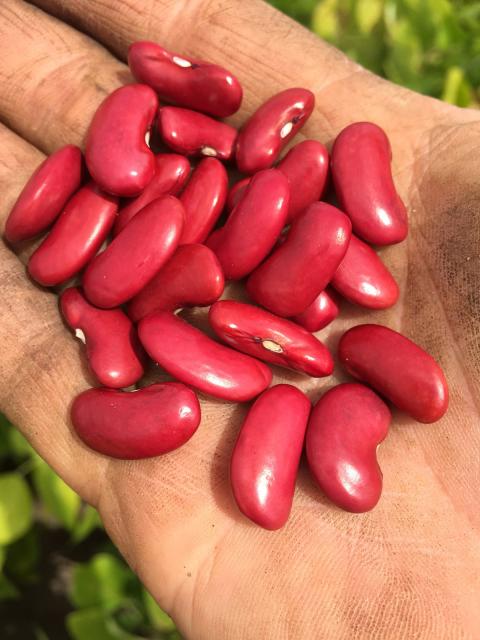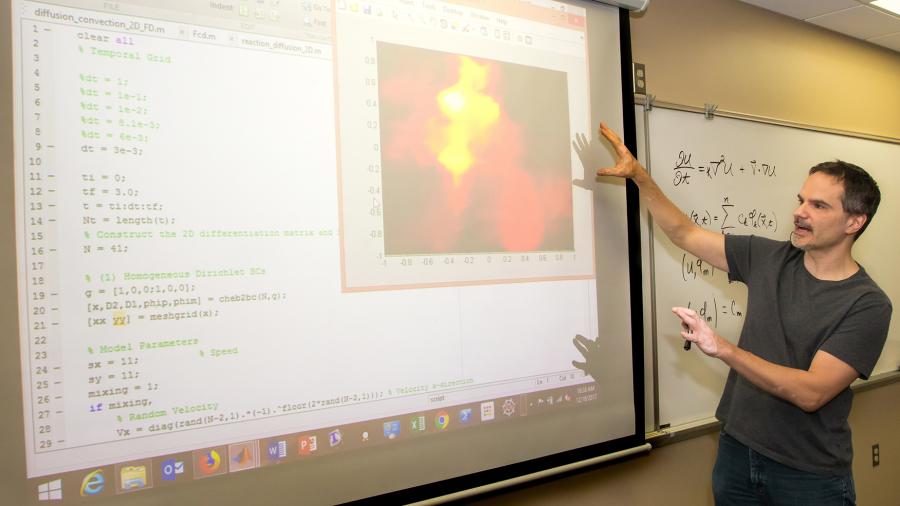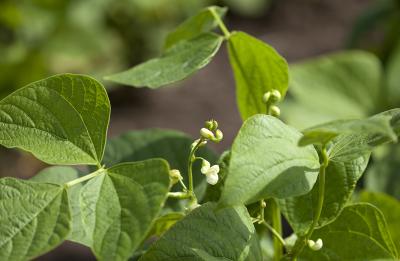In Wisconsin, the Central Sands Region is well known in agriculture for its sandy soil and the challenges it presents for growing crops.
Encompassing parts of eight counties in central Wisconsin and covering 1.75 million acres, the region has deep deposits of sand from prehistoric glaciers. Because water easily seeps through the dry soil, more water than usual often is needed to produce a crop yield for farmers to turn a profit.
Mathematicians at University of Wisconsin-Stout are digging into the problem of how farmers can increase crop yields in the Central Sands and other sandy soil areas, including northwestern Wisconsin, and how to sustainably use one of the world’s most precious resources, fresh water.

The project, Predicting Crop Per Drop in Sandy Soils, will kick off this summer, thanks to a $36,000 grant from the Freshwater Collaborative of Wisconsin, in collaboration with a regional leader in agriculture, Chippewa Valley Bean, the world’s largest producer of dark red kidney beans. The company is based in Dunn County.
How can mathematics and data science help produce more red kidney beans and potentially aid farmers around the state and world?
The answer hopefully will be in a set of equations developed by UW-Stout. The equations would be the basis for a software-based application used by agronomists at Chippewa Valley Bean. Agronomists would test soil areas for moisture, input their numbers and get an output for the optimum amount of water needed for the highest crop yield.
Research results would help Chippewa Valley Bean’s growers, who farm across Wisconsin and the Midwest, answer two key questions:
- How many inches of water are required per 100 weight of kidney bean?
- When is irrigation necessary and how sensitive are kidney beans to the length of the irrigation time window?
Agronomists could quickly test inputs on a laptop computer instead of having to do field experiments to determine the best watering strategy.

It’s an important issue, says Professor Keith Wojciechowski, who will co-lead the project with Professor Tyler Skorczewski. They will guide two undergraduate students, Anna Hansen, a sophomore applied mathematics and computer science major from Eau Claire, and Audrey Williams, a sophomore AMCS major from Necedah.
“The use of data and more sophisticated mathematical and statistical modeling to make decisions, such as when and how much to plant, water and harvest, is one way in which farmers increase their efficiency at the margins,” Wojciechowski said.
Students will do the research and learn the mathematics, data analysis and programming skills.
“It’s exciting to bring in the next generation of students to work with us on this. It’s why I became a professor,” said Wojciechowski, who previously worked as an applied mathematician in the defense industry.
He is director of UW-Stout’s Master of Science program in applied mathematics and data science.

Wojciechowski initially approached Chippewa Valley Bean Vice President Charles Wachsmuth, a UW-Stout alum, about opportunities to work with UW-Stout’s mathematics, statistics and computer science department on research projects that could benefit the company.
The issue of how much crop irrigation is needed has been tackled before by researchers but not for sandier soils such as in the Central Sands region or specifically for kidney beans, Wojciechowski said.
“We’ll take existing research and modify it. It’s not cutting edge but difficult enough to recalibrate the models and enhance them by dealing with the particular soil type we have to deal with,” he said.
UW-Stout’s model could be altered for a variety of soil types and updated as more or higher quality data is provided.
“This problem is becoming more and more important as we lose farmable land globally,” he added.
Wojciechowski sees the project as an example of the experiential learning championed by UW-Stout, Wisconsin’s polytechnic university, and the Wisconsin Idea — the UW System mission to improve the lives of state residents. “We’re a public university, and we should be out there helping the public,” he said. “We’re helping Chippewa Valley Bean, which is helping farmers put food on the table.”
Predicting Crop Per Drop in Sandy Soils is one of eight projects totaling $306,000 at UW-Stout recently funded by the Freshwater Collaborative of Wisconsin.
The project also will collaborate this summer with UW-Stout’s LAKES REU — research experience for undergraduates — program funded by the National Science Foundation.
###






